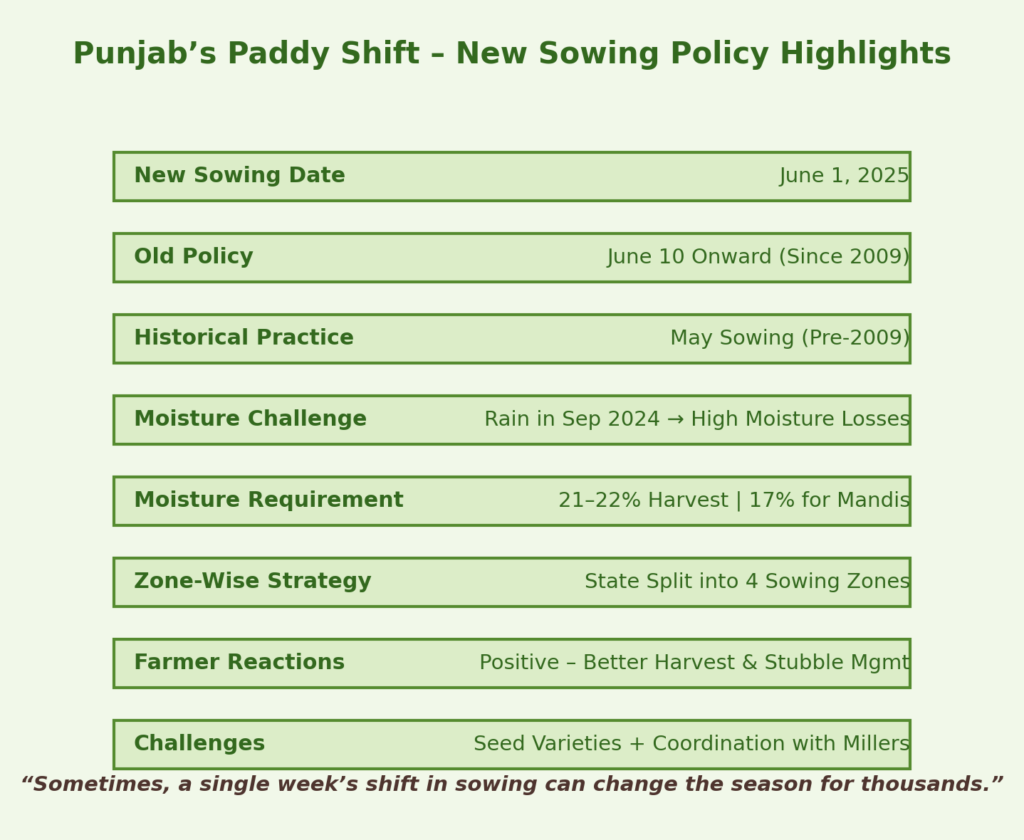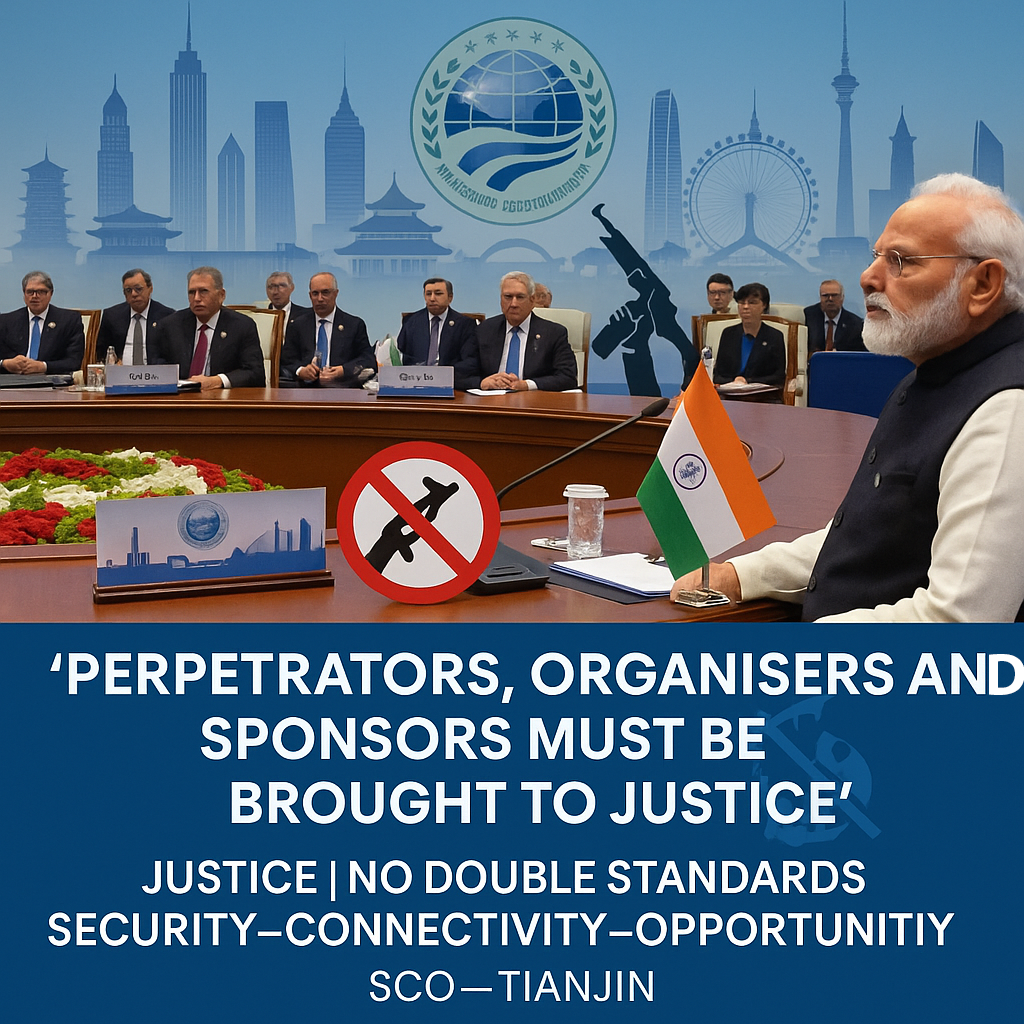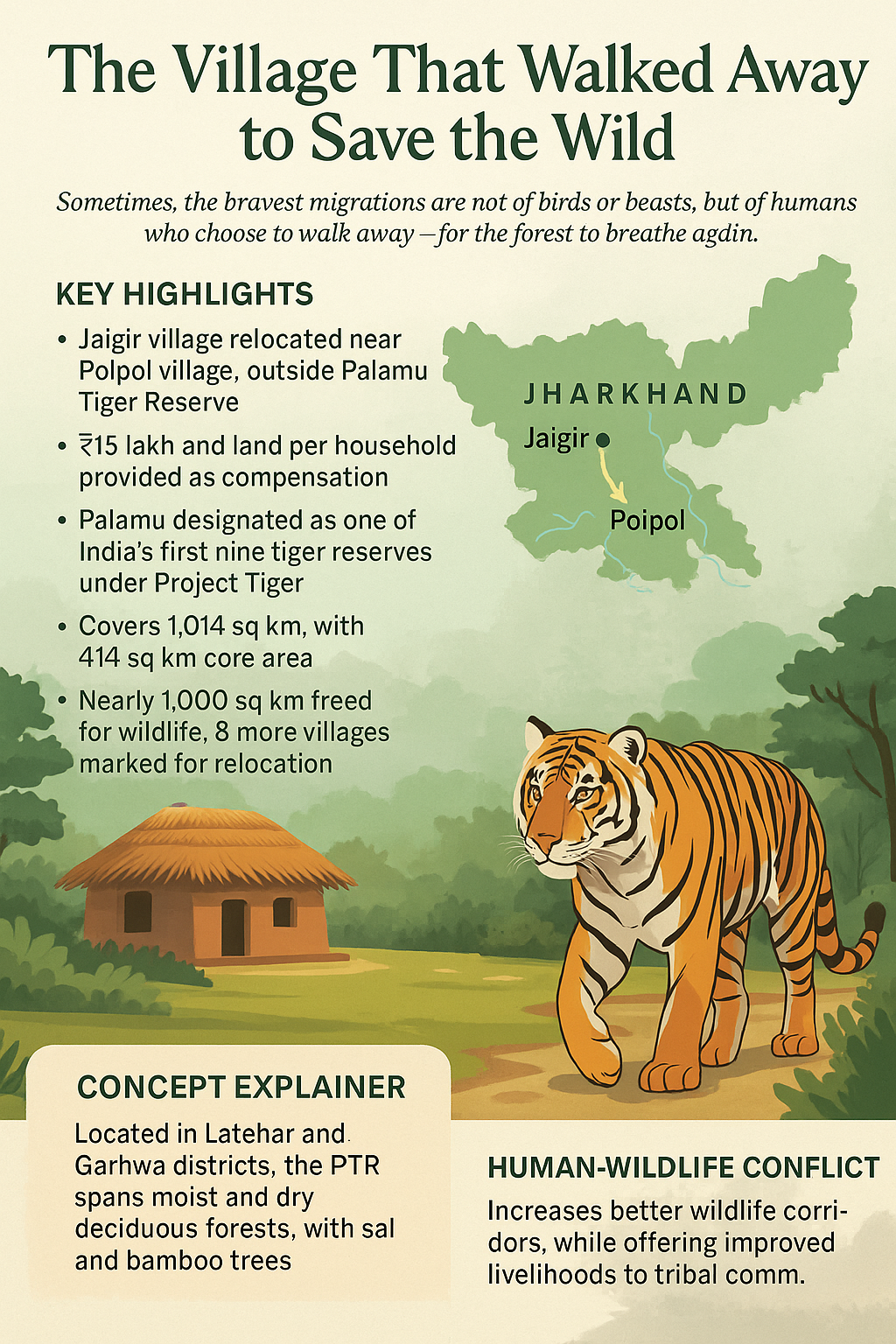
003. Rewriting the Calendar – Punjab Advances Paddy Sowing 🌾
Agriculture, Governance, Environmental Policy, Farmers’ Welfare
By IAS Monk / April 2, 2025


In a major step toward agricultural alignment and procurement reform, the Punjab government has announced a shift in the paddy sowing calendar, allowing transplantation to begin from June 1, 2025.
This move is aimed at reducing moisture-related crop losses, enhancing procurement efficiency, and offering farmers a smoother crop cycle.
📅 Why the Calendar Shift?
- Moisture-laden paddy → delays in procurement, payment cuts, market gluts
- Ideal moisture: 21–22% at harvest, 17% at mandis
- Last year’s rains led to financial losses across districts
📍 Zone-Wise Sowing Strategy
- Punjab divided into 4 zones for paddy management
- Areas with waterlogging or climatic sensitivity get tailored plans
- Promotes region-specific resilience and efficient scheduling
🕰️ A Look Back – Historical Context
| Year | Policy |
|---|---|
| Pre-2009 | Transplantation as early as May |
| 2009 Onwards | Delayed to June 10 to conserve groundwater |
| 2025 | Return to June 1 start, balancing climate & procurement |
🌧️ Climate Disruptions & Market Losses
- September 2024 rains delayed drying
- Procurement backlogs + mandi overcrowding
- Moisture-related deductions in payments hit small farmers hard
🌱 Farmers Respond
- Welcomed move as long-standing demand
- Smoother transition from paddy to wheat
- Better stubble management, procurement timelines
⚠️ Challenges Remain
- Confusion over suitable seed varieties
- Past issues with PR 126 variety (quick harvest, gluts)
- Insufficient coordination with rice millers and procurement centres
📚 Relevance for UPSC
- GS3: Agriculture, Environmental Planning, Farmer Policy
- GS2: Governance, State Policy Innovations
- Essay: “Agricultural reform is not just about change—but timing.”
✨ Closing Whisper
“Sometimes, a single week’s shift in sowing can change the season for thousands.”
🔥 A Thought Spark – by IAS Monk
Calendars are not just pages of dates—they are contracts with the Earth.
Punjab’s step forward is a return inward—to local wisdom, climate logic, and the pulse of farmer voices.
A state listens. A field responds.


















